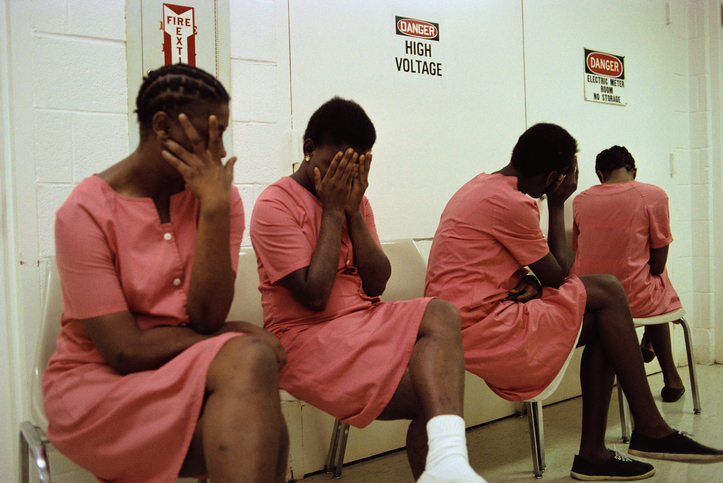
Source: Bill Gentile / Getty
With 2.12 million people behind bars as of June 2020, the United States has more people in jail or prison than any other country in the world. Perhaps it comes as no surprise these people, often forgotten by society, are denied basic human rights. Many incarcerated individuals have to contend with physical, emotional and psychological abuse, as well as cruel and unusual punishment and in the case of pregnant, imprisoned women, there’s forced separation from their newborn babies after giving birth.
Thankfully, a new law introduced in Minnesota seeks to put an end to that.
According to The Lily, currently, incarcerated mothers in the state of Minnesota are not allowed to keep their newborn children. They are given 2-3 days in the hospital before the baby is taken away from the mother and placed in the care of a relative or become a ward of the state.
Thanks to the efforts of Raelene Baker, a doula in the Minnesota prison systems, this practice is on the way out.
Baker has been lobbying and organizing with her colleagues. As a result, Governor Tim Walz signed a law in May that will make the state the first one in the country to stop separating women in prison or jail from their newborns.
According to The Star Tribune, the law which allows mothers and babies to stay together in a community based program for up to a year after birth, will go into effect in July.
Minnesota officials believe the policy will decrease the recidivism rate.
This is not the first time doulas in Minnesota have advocated for the rights of incarcerated, pregnant mothers.
In 2010, they began providing free birth coaches for inmates. In 2014, the legislature abolished the practice of handcuffing pregnant women to the hospital bed before and after delivery. They also began allowing women breast pumps when they returned to prison.
The Lily reported that there are several other states that have programs which allows infants to stay with their mothers for more than just a few days after birth. But this is the exception. Globally, the U.S. is one of only four countries to systematically separate incarcerated women from their newborns.
The details of what these year-long community based programs will look like are still being finalized.
According to the Star Tribune, in Minnesota, around 20 women give birth in jail every year. Nursing for Women’s Health reports that nationally this number is around 1,400, with 6-10 percent of women being pregnant when they enter jail or prison.
Baker said in her experience, most of the women who are pregnant are in jail or prison for something minor, often something as small as a technical violation of an old charge.
According to stats from the Minnesota Department of Corrections, of the 278 pregnant women who were convicted between 2013 and 2020, 77 percent were for technical parole or probation violations, such as failing a drug test or missing an appointment with their supervising officer, and 88 percent had nonviolent offenses.
Half of the women would be released six months after giving birth.
Senator Mary Kiffmeyer (R), told the Star Tribune, “These are already very short sentences, but this period of time in a baby’s life and a mother’s life is critical. There’s always that concern that you’re being soft on crime, but this is being soft on babies. It gives them a chance.”
Similar laws are popping up in other states across the country. In Georgia, the state legislature is considering a bill that would allow judges the discretion to release pregnant women on bond and defer their sentence for 12 weeks postpartum.









